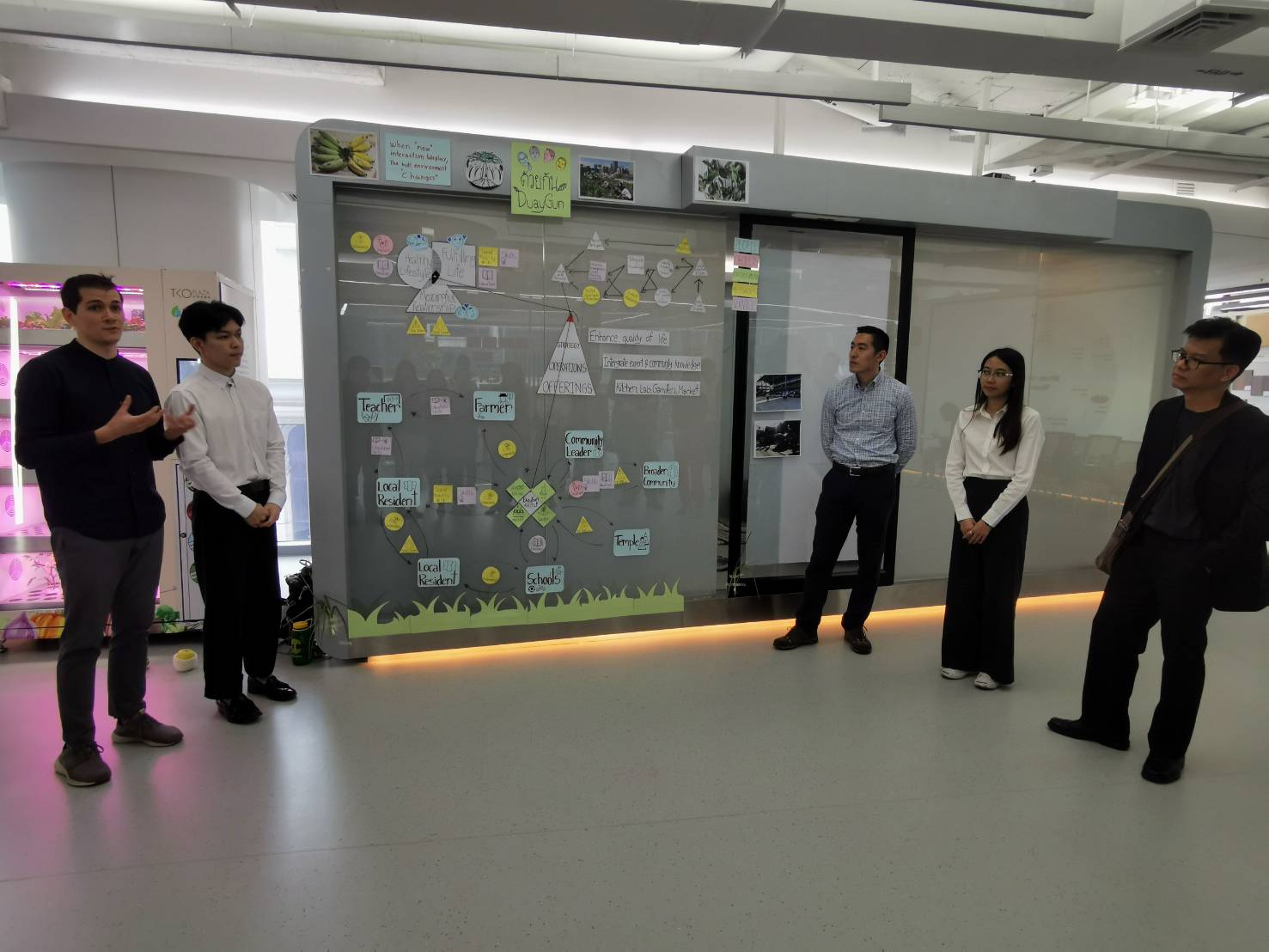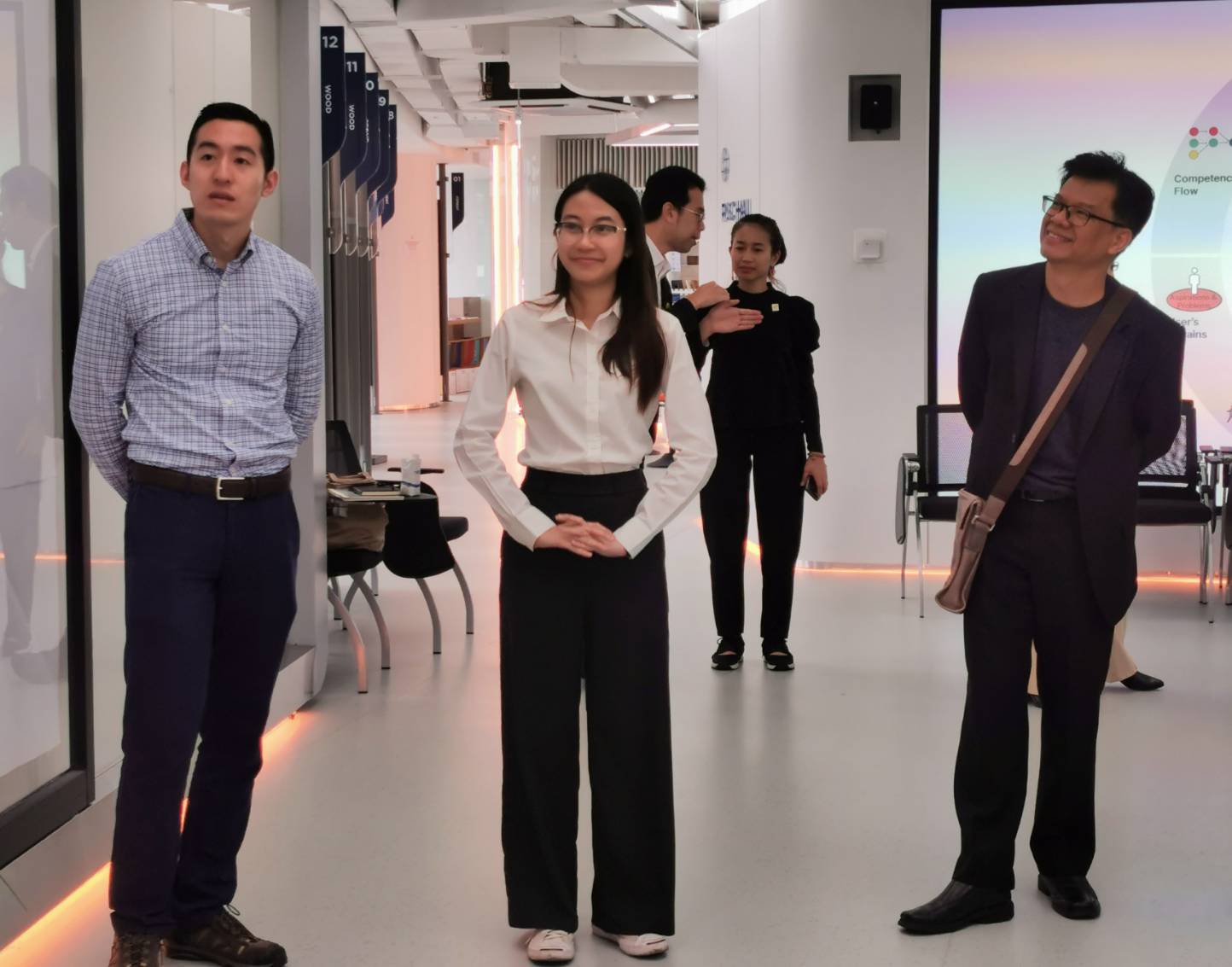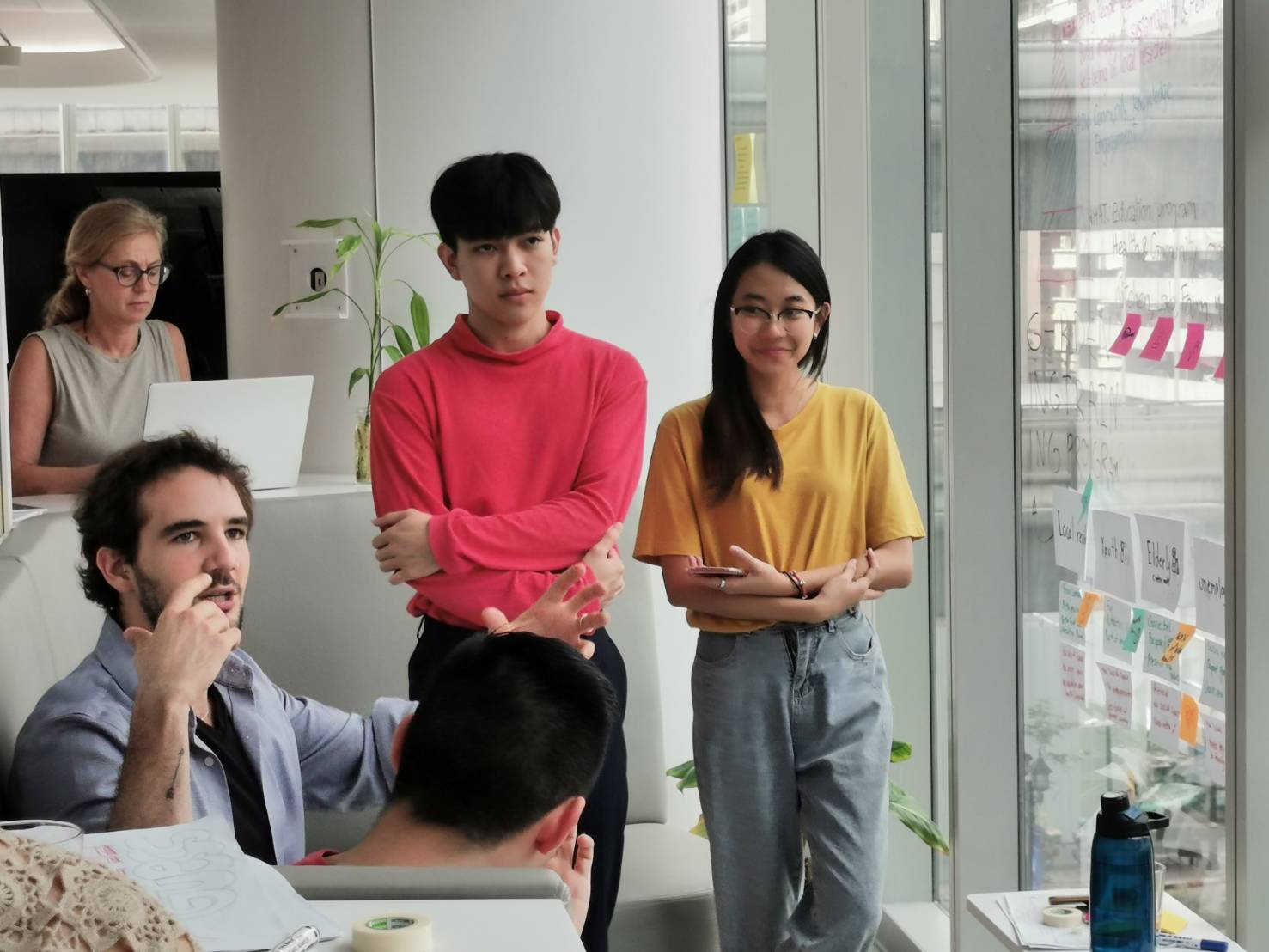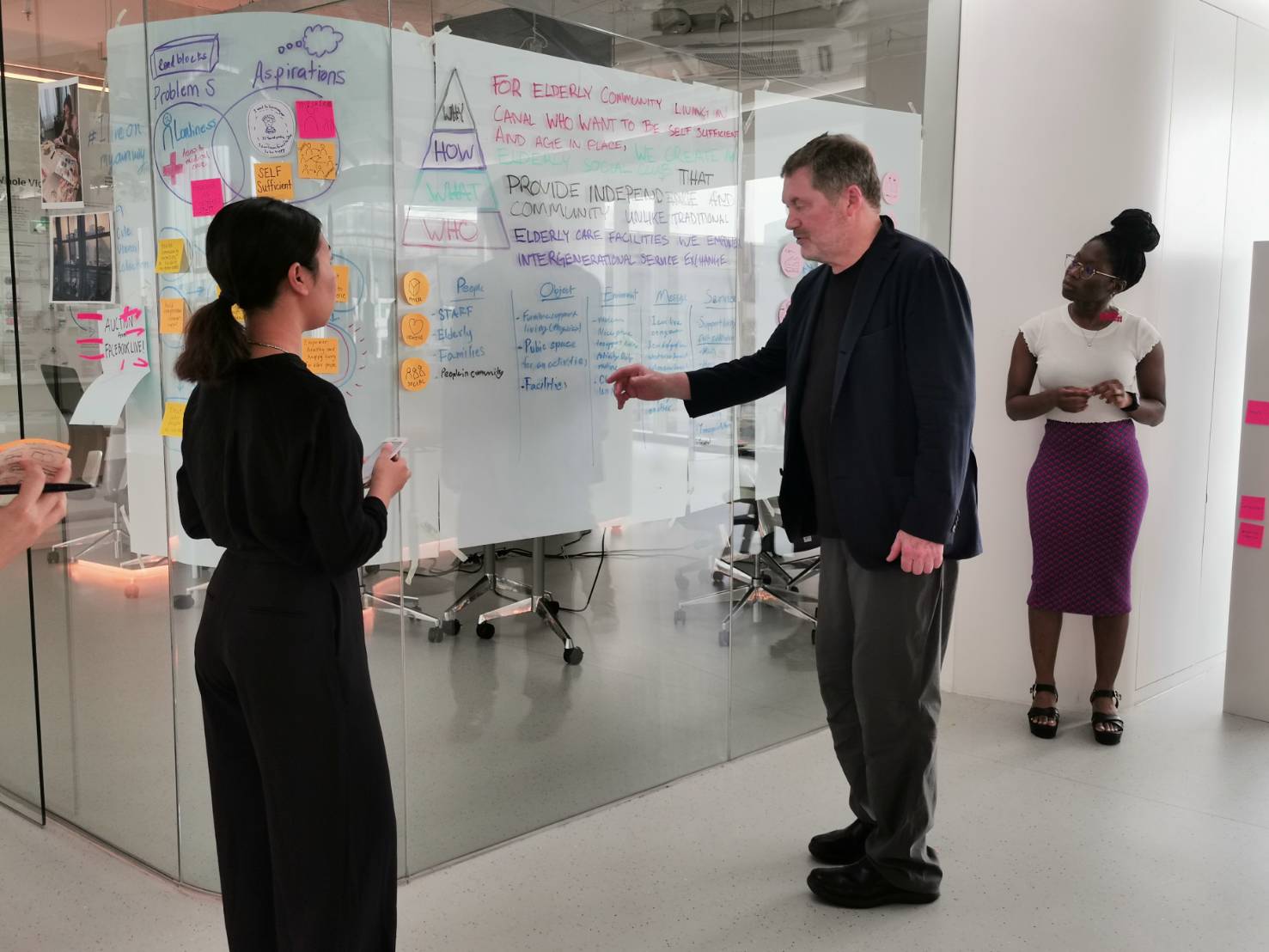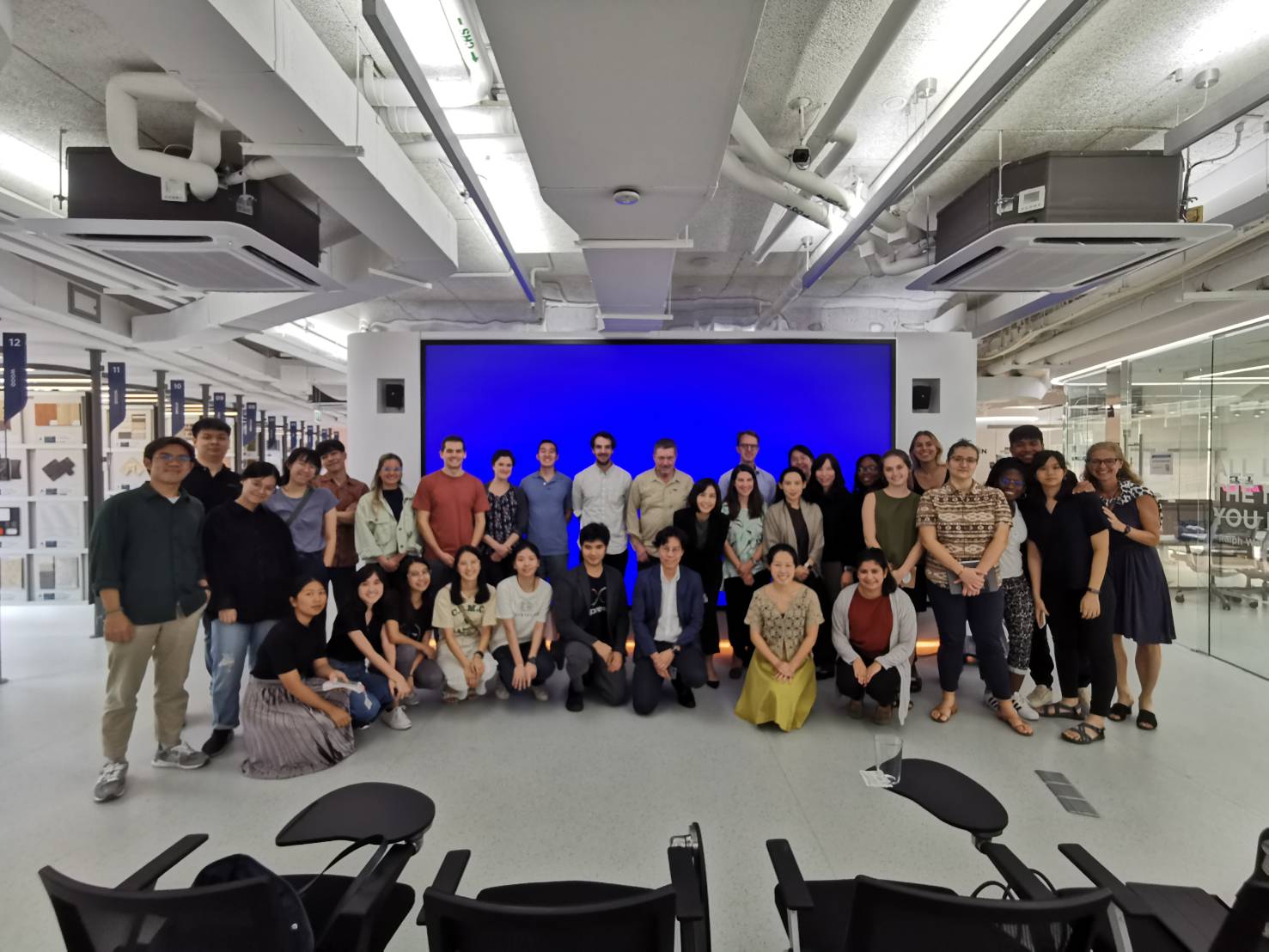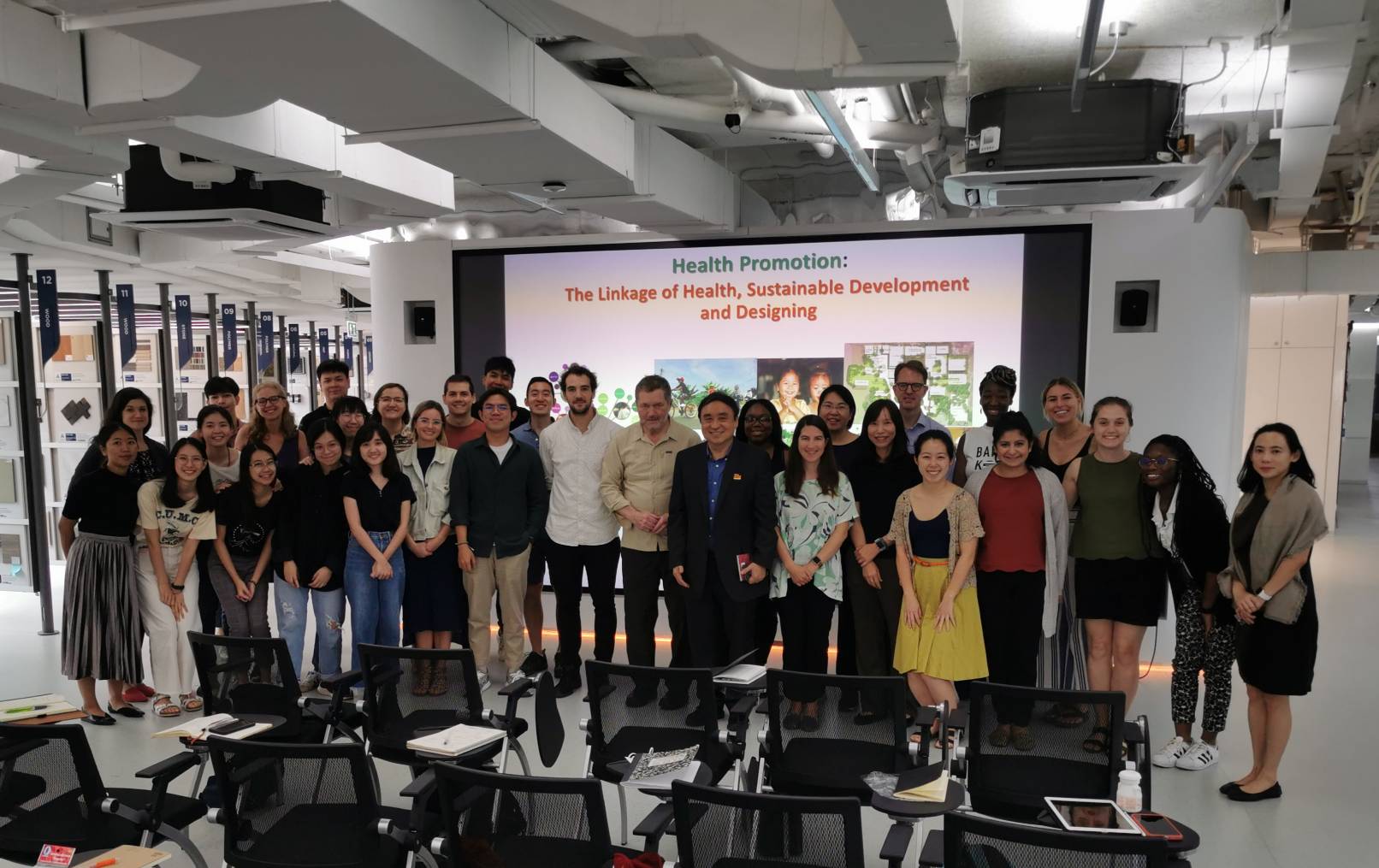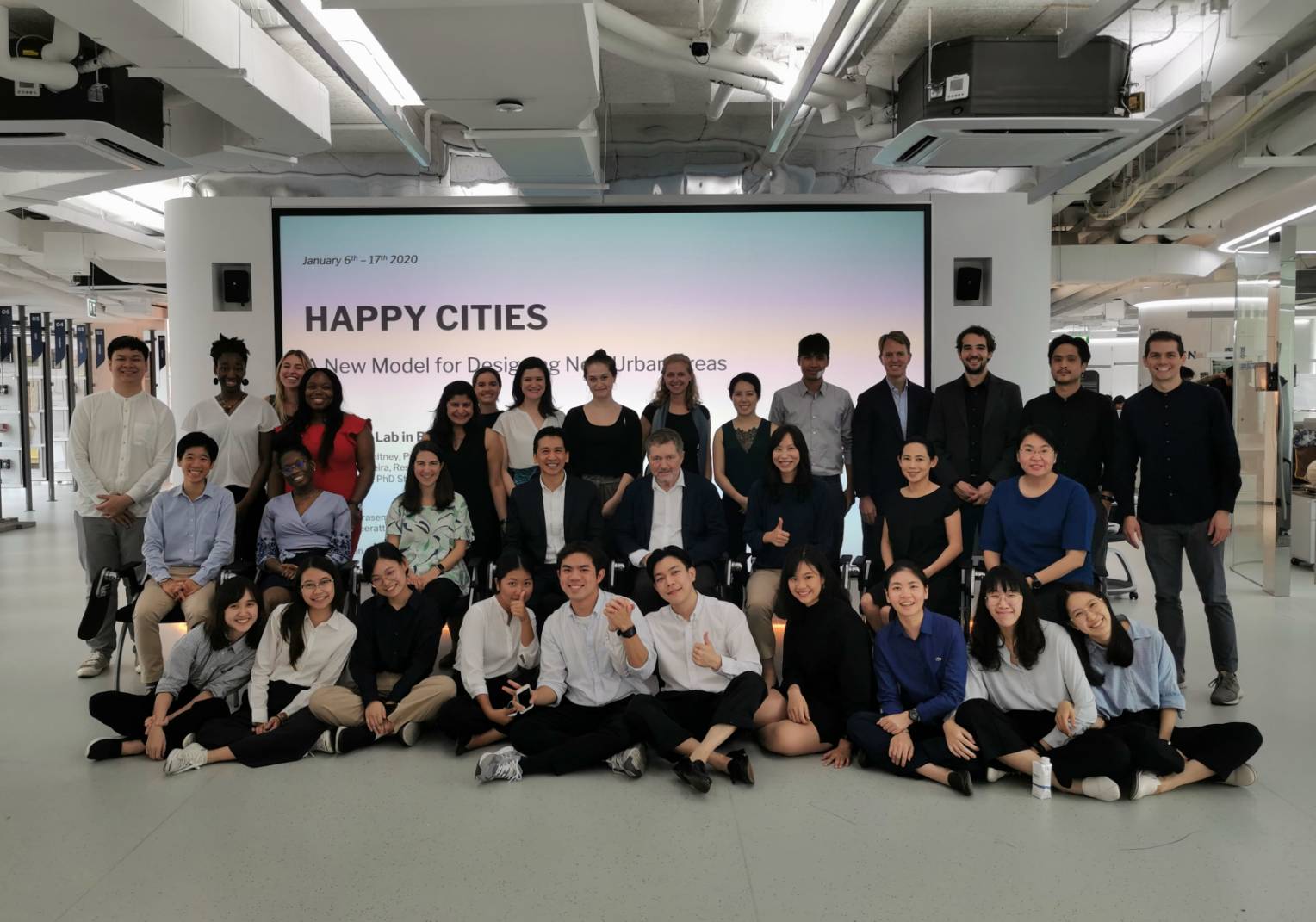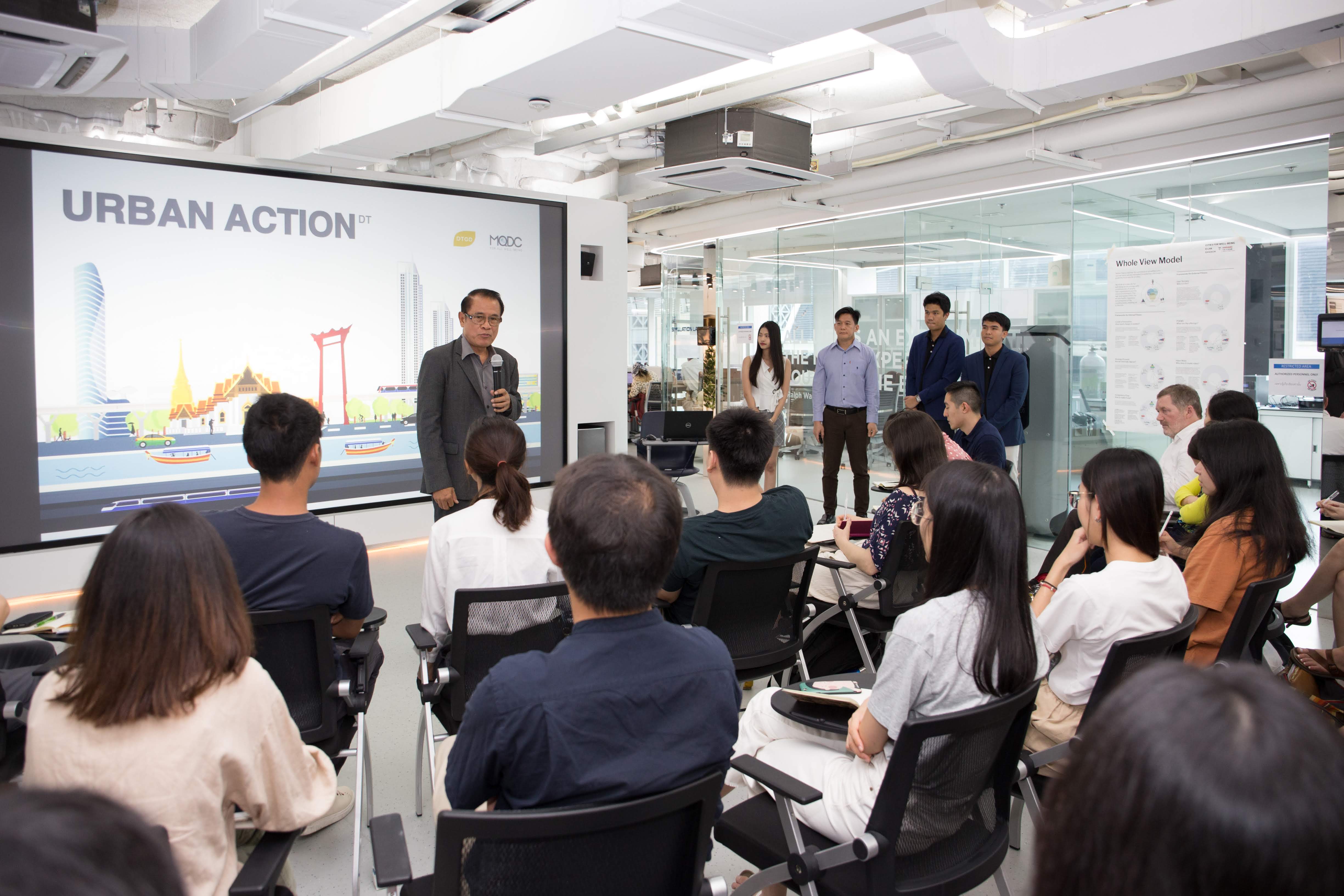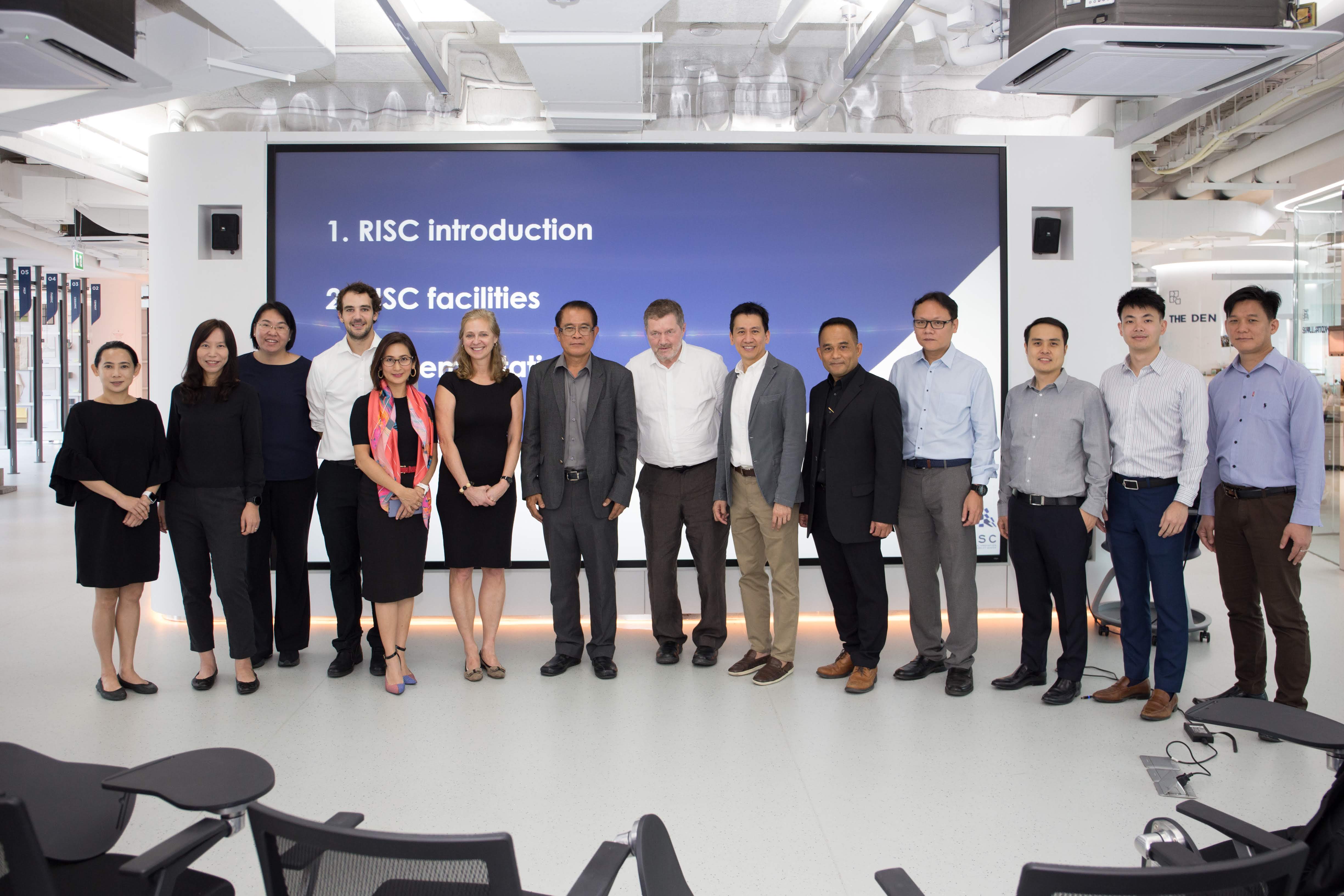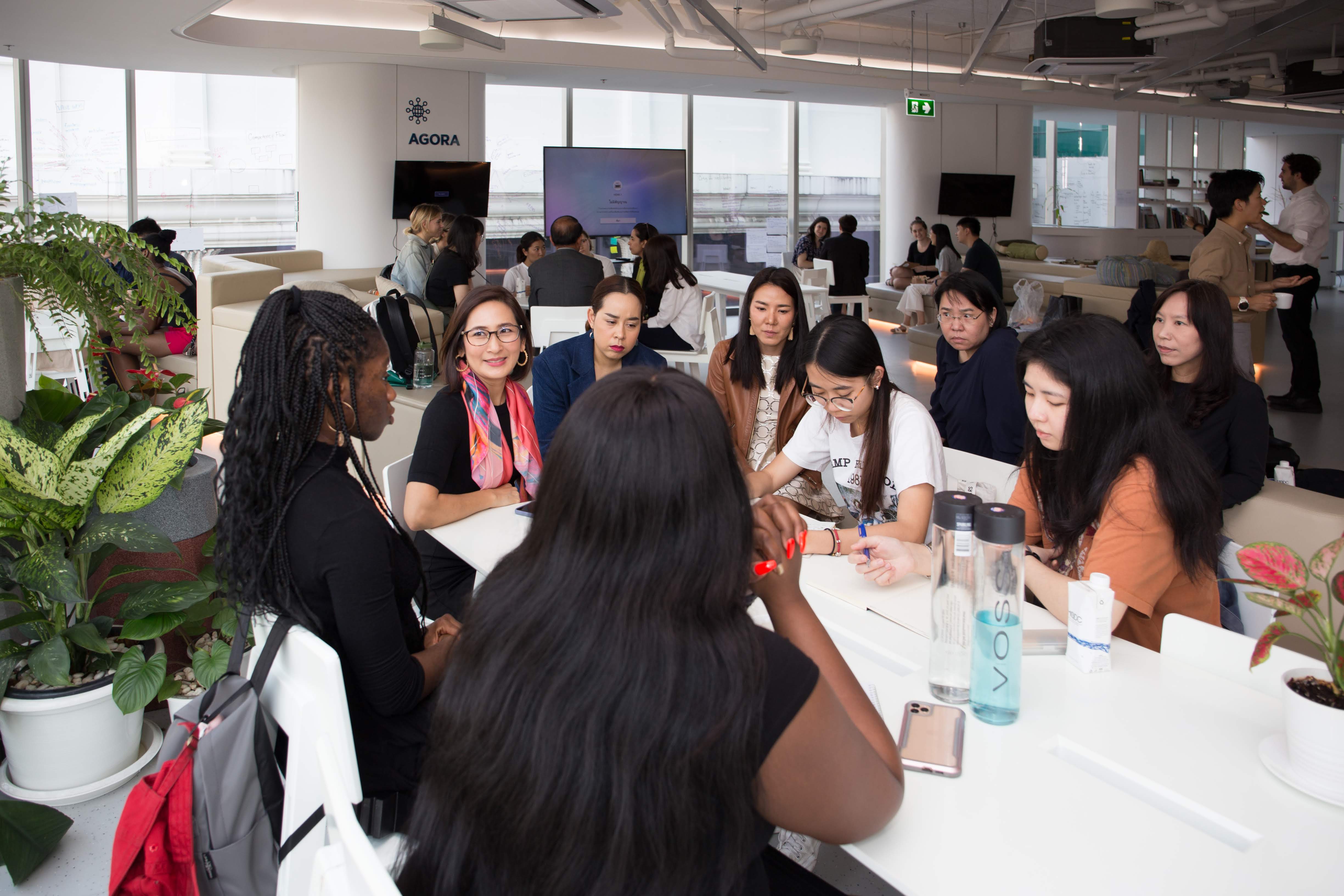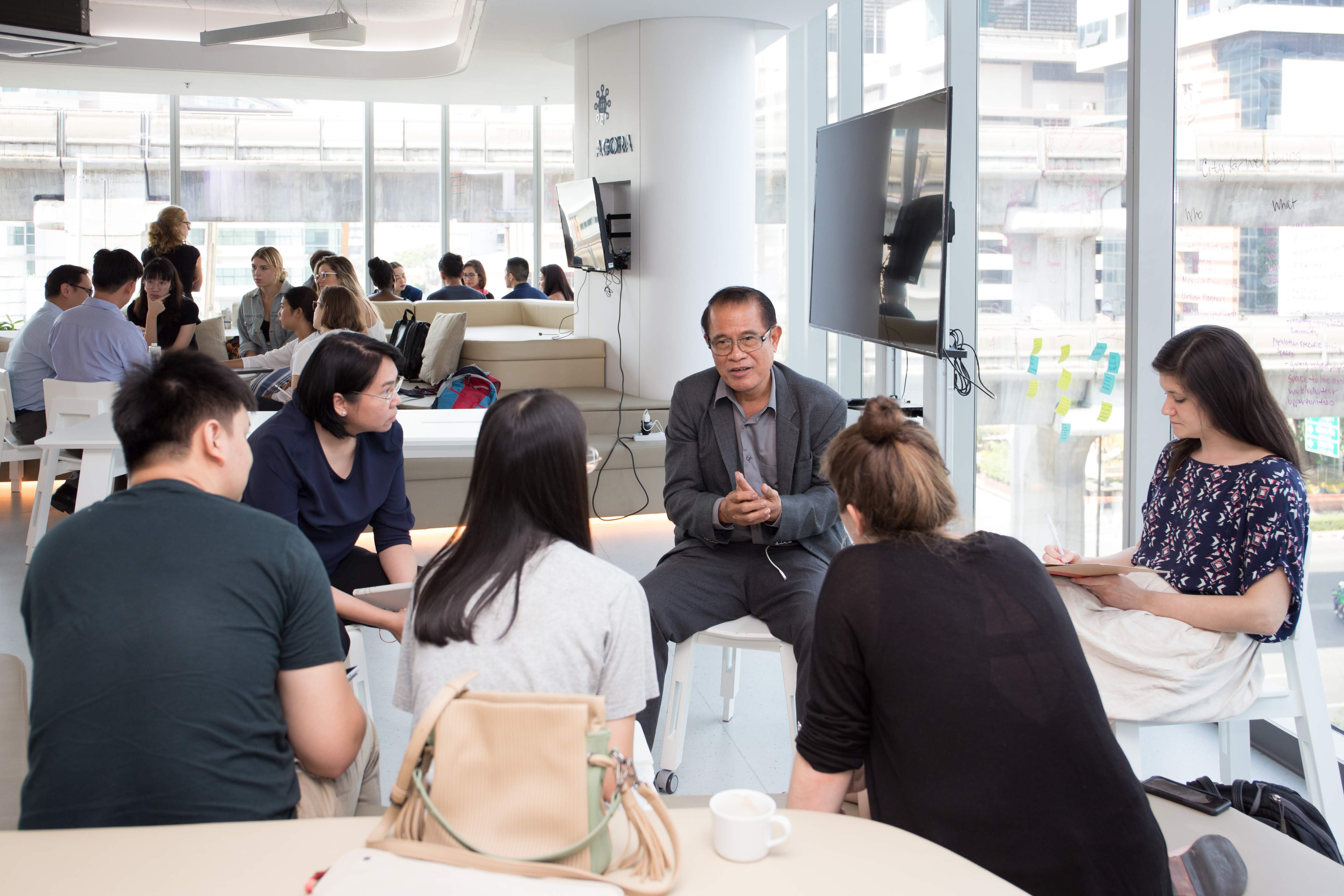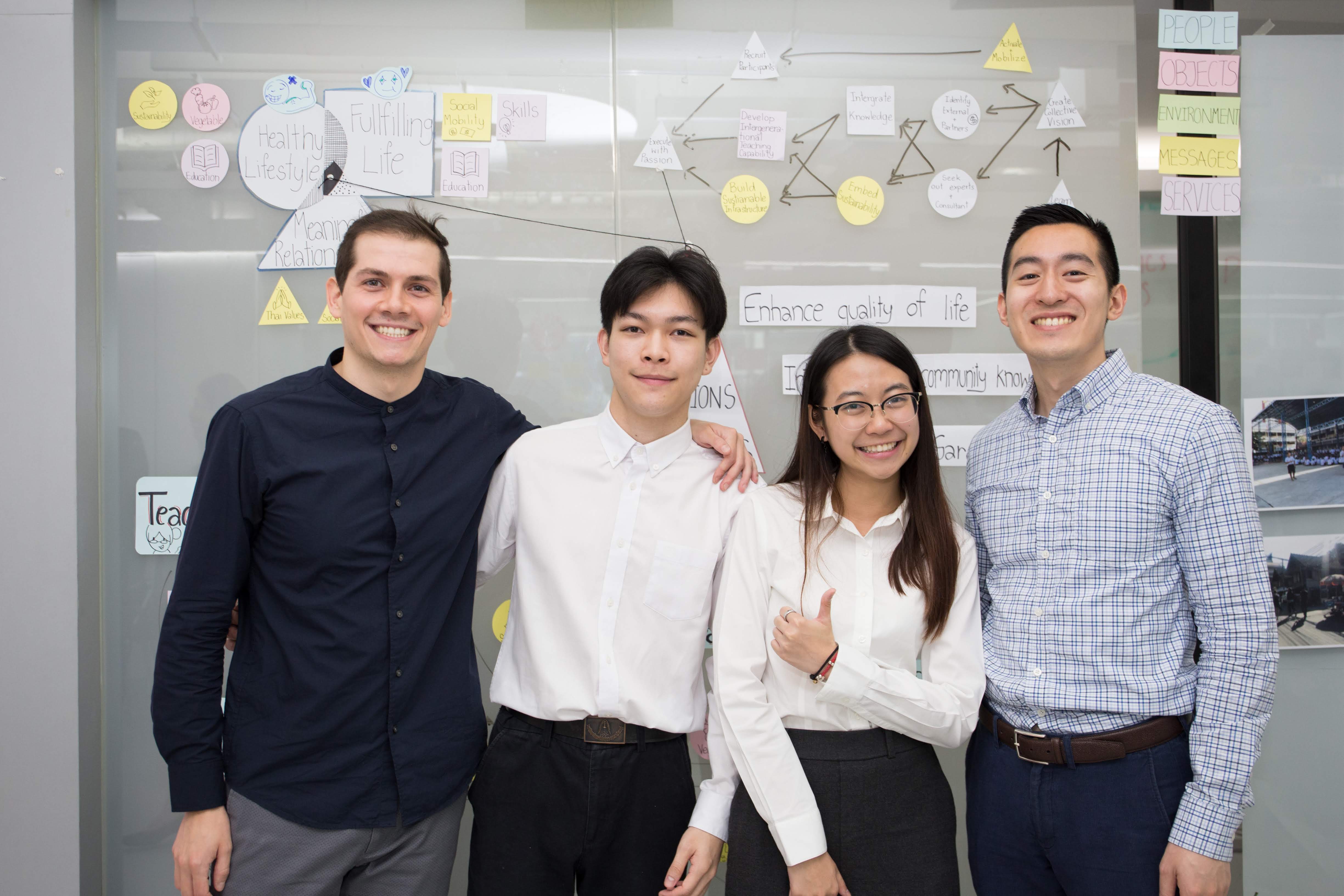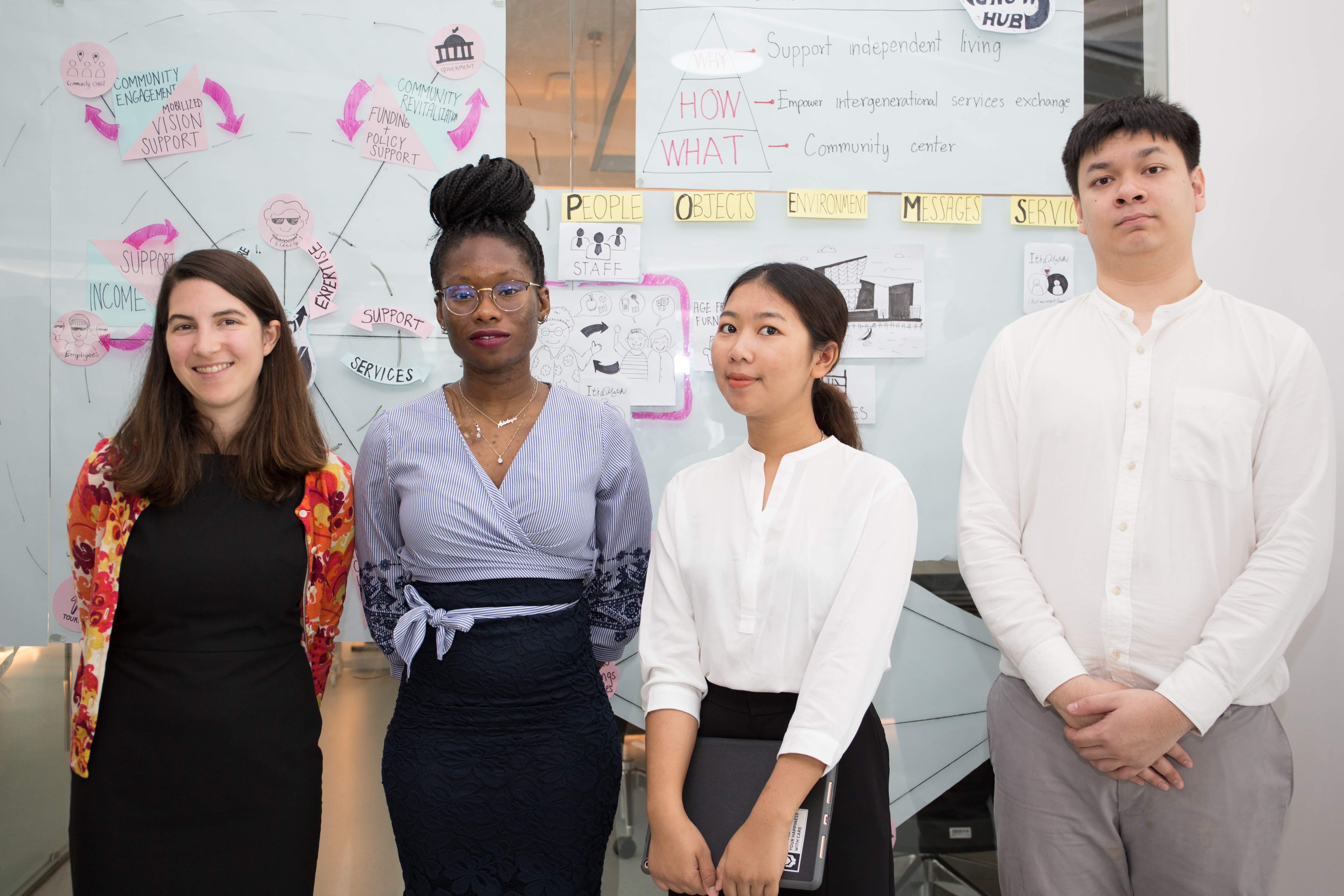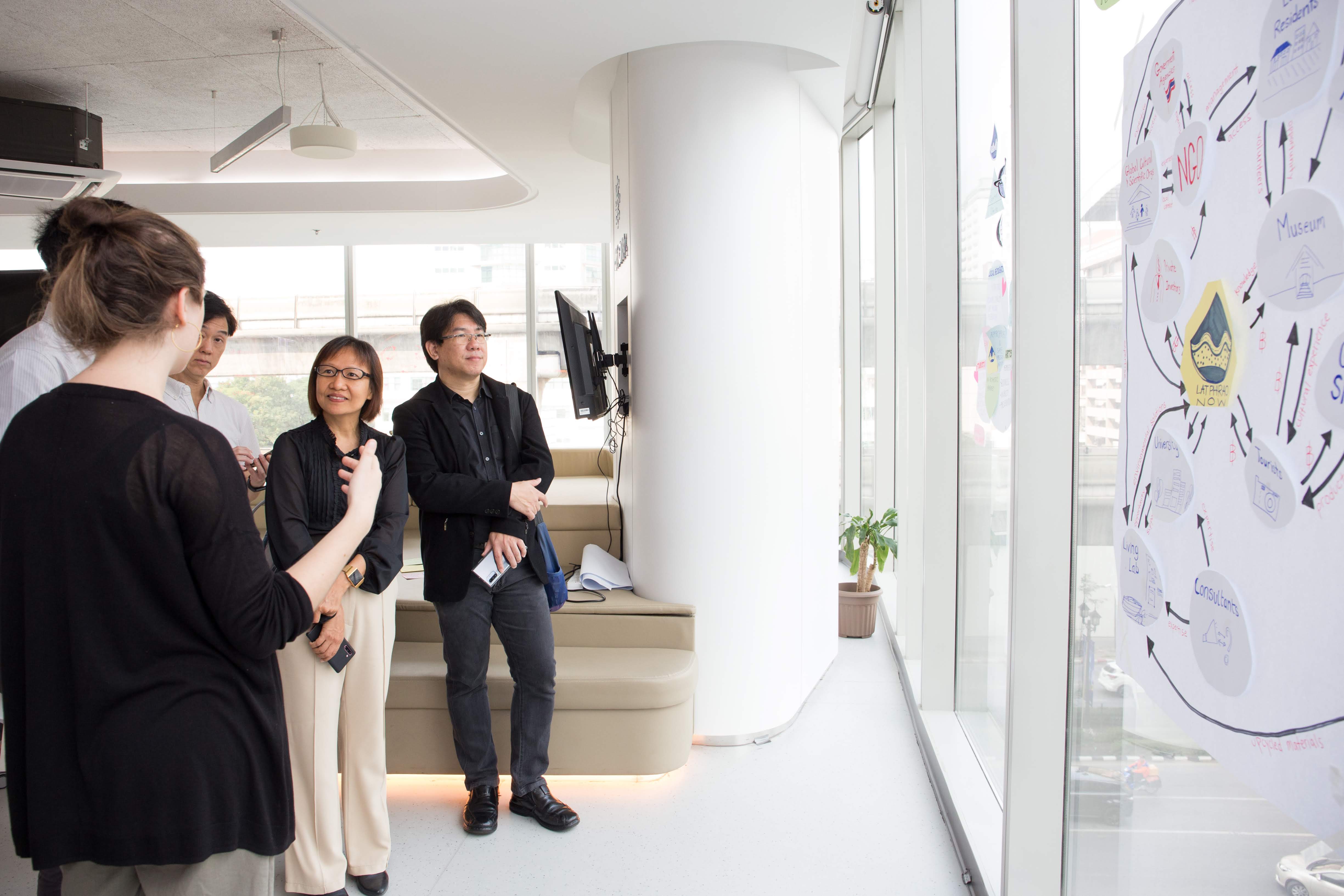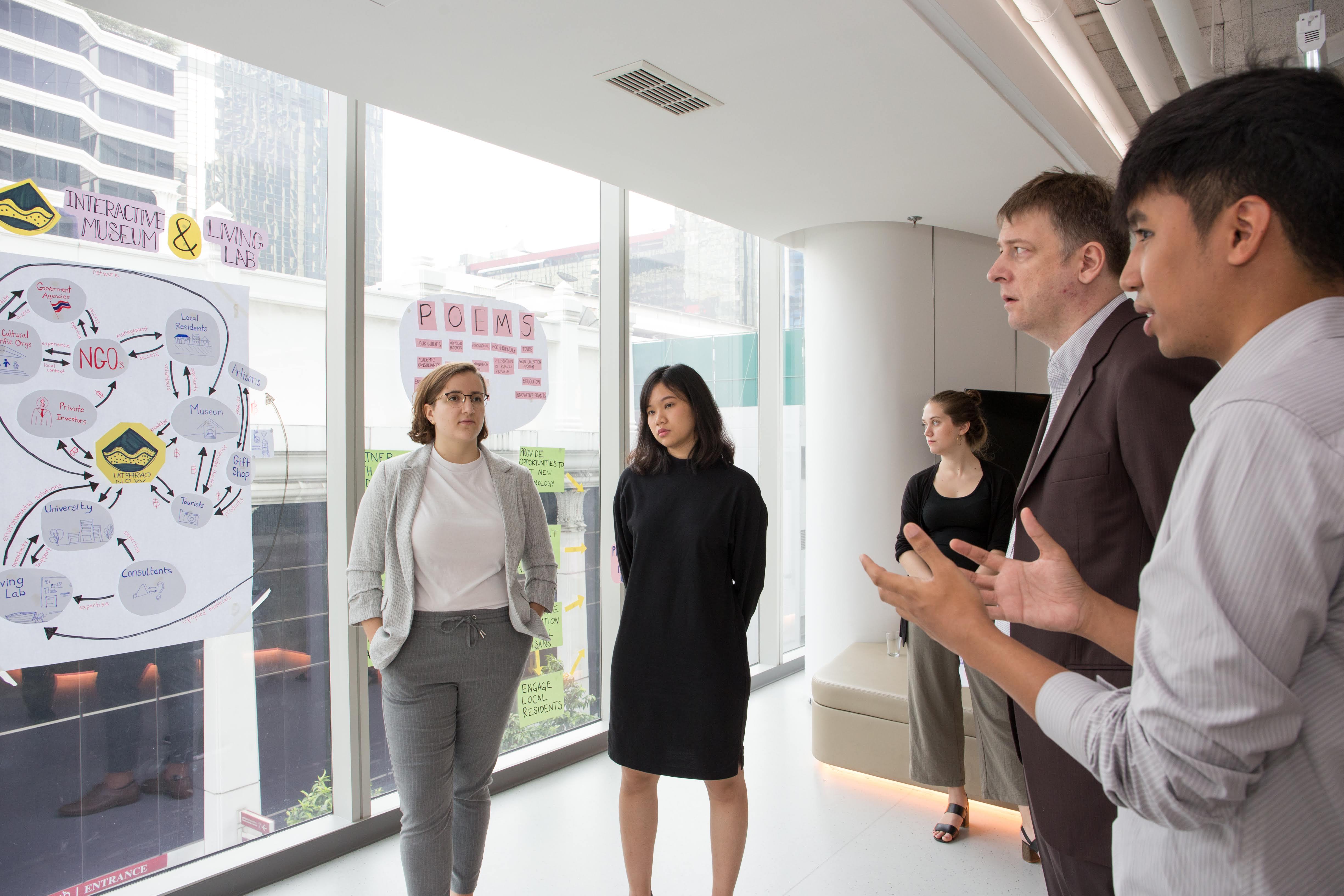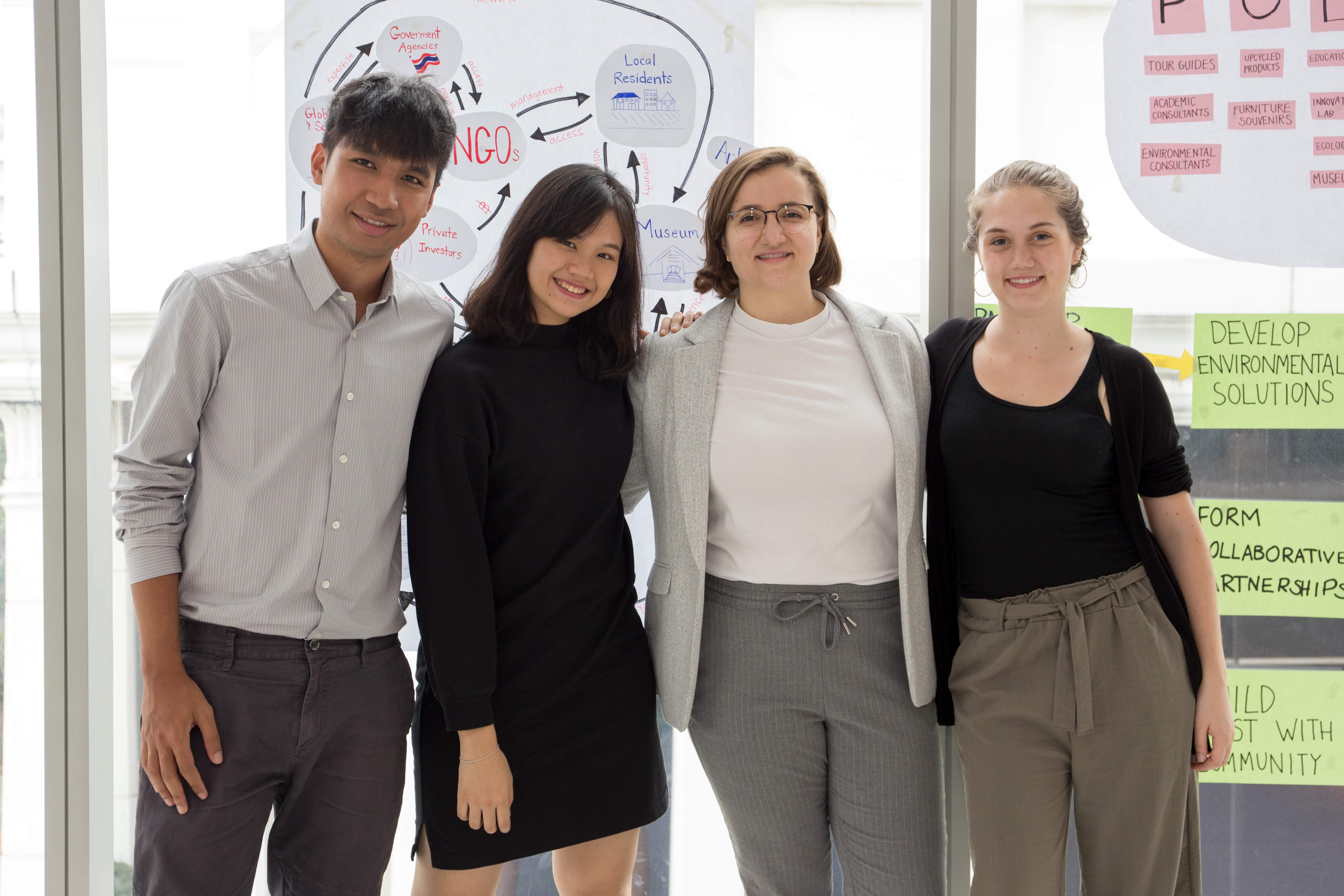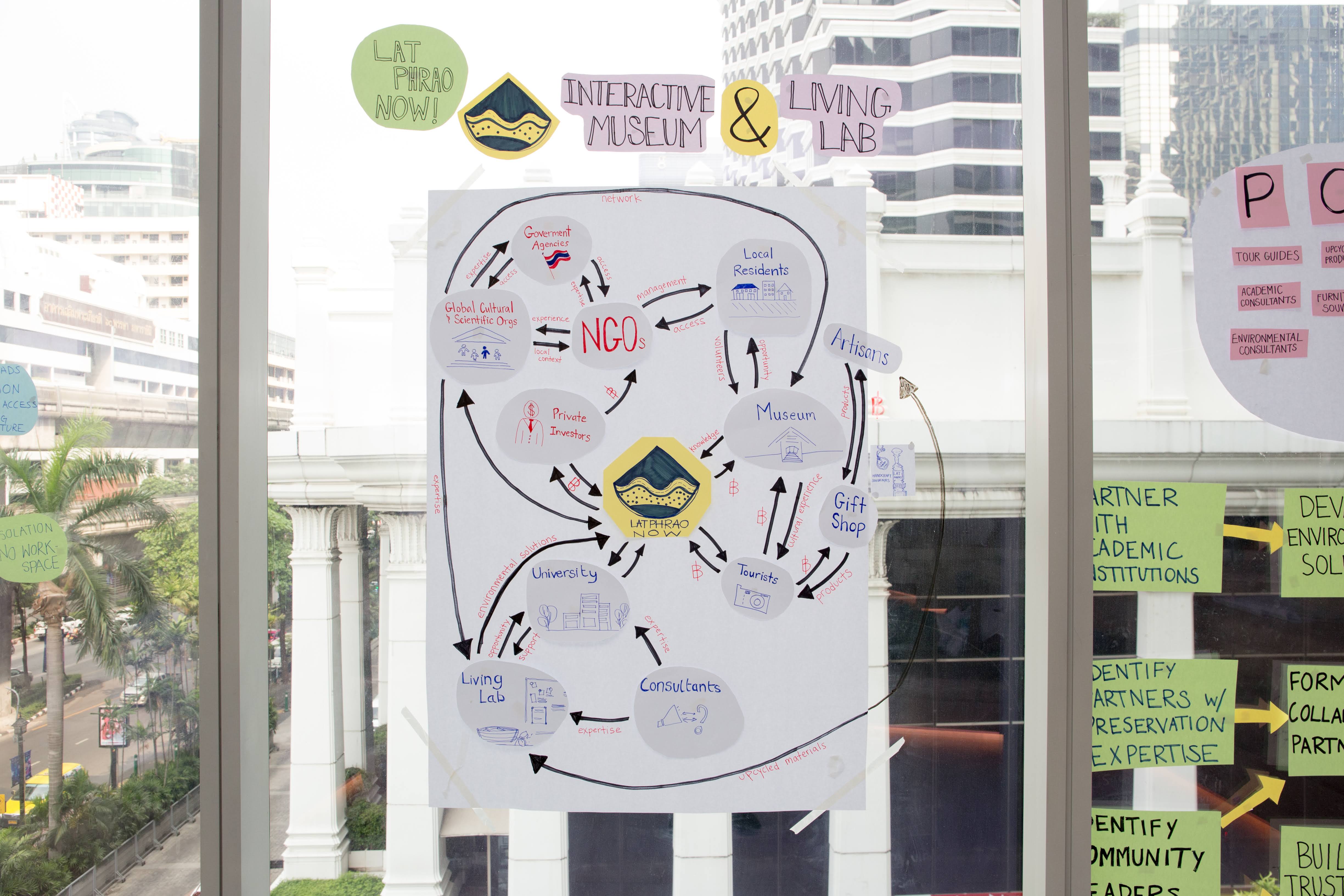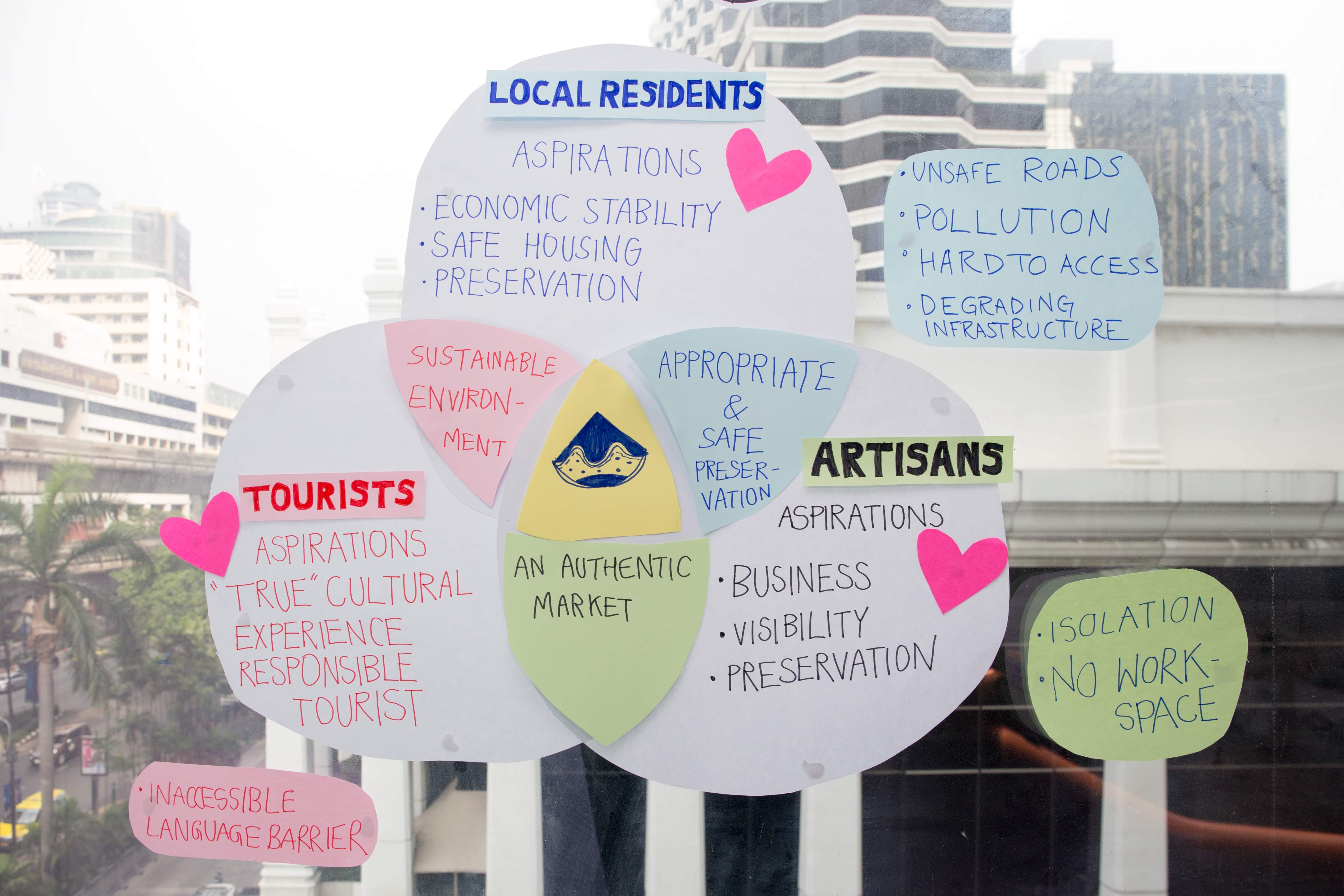King Mongkut’s University of Technology Thonburi together with Harvard University, Chulalongkorn University and Magnolia Quality Development Corporation Limited organized a workshop, “Happy Cities: A New Model for Designing New Urban Areas”
The workshop, “Happy Cities: A New Model for Designing New Urban Areas”, was a collective project of the School of Architecture and Design of King Mongkut’s University of Technology Thonburi (KMUTT), Harvard University (HU), Chulalongkorn University (CU), and Magnolia Quality Development Corporation Limited (MQDC). It was held on 6 -17 January 2020 at the Research and Innovation Center for Sustainability (RISC) in Bangkok.
Assoc. Prof. Dr. Chujit Treerattanapan, Associate Dean for Research, said, “Happy Cities is a Human-Centered Design focusing on how to encourage Thai people get a better quality of life in a holistic way, considering physical health, mental health and sustainable environmental management”. She also stated that the workshop had applied the ” Whole View Model”, a design principle of Prof. Patrick Whitney (from the Department of Health Policy and Management, Harvard School of Public Health at Harvard University). The representatives of the state agency and private sectors composed of the Office of Thai Health Promotion Foundation, the Strategy and Evaluation Department, Bangkok Metropolitan Administration, PTT Public Company Limited, The Siam Cement Pcl., Urban Action and MQDC shared their knowledge and perspectives on health and environmental management, and sustainability as well as the vision and overview of the future development of Bangkok. In addition, the participants were given a tour around the community to learn and understand life, culture, and context of Thai society. They gained the knowledge from brainstorming and designing based on the concept of “Happy Cities”. In this regard, the guests serving as a committee gave their opinions and suggestions for the workshop presentation.
The Deputy Dean for Research (SoA+D) said that the workshop resulted to diverse and interesting perspectives and comments. The government and private sectors could be utilized in the future development. She added that it was a platform where the students in Industrial Design and Architecture programs could exchange their ideas, and experience working with other students from world-leading universities. Meanwhile, SoA+D has also been looking forward to a possible cooperation in teaching and learning management with other universities in the future.
